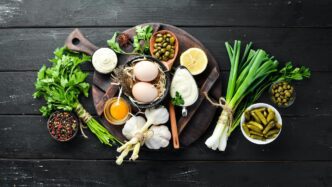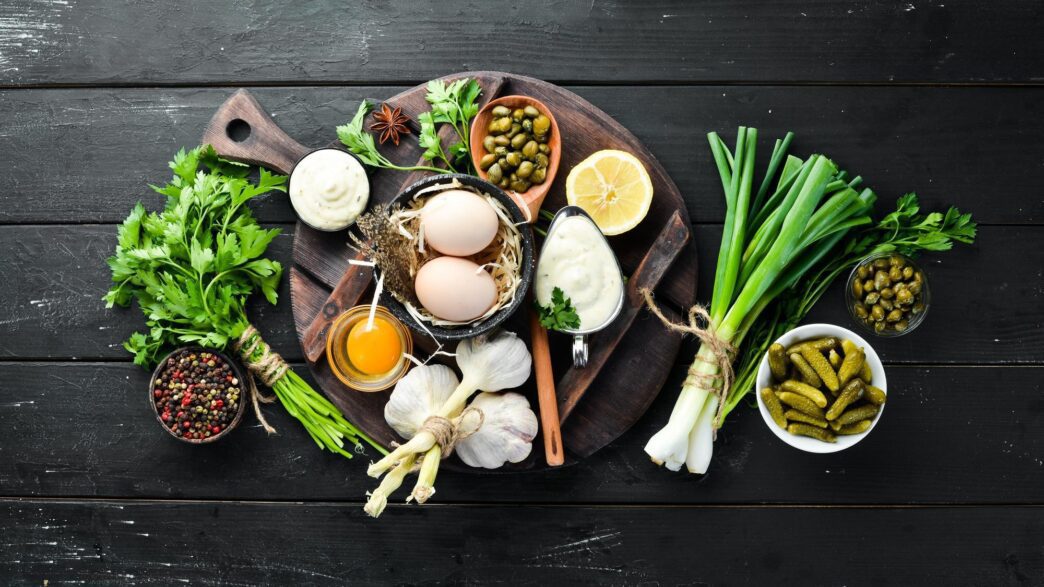A Quick Takeaway
The Story Behind the Trend
How to Make It Work for You
The Community View
Allium vegetables, part of the Allium genus, are nutritional powerhouses that can significantly boost your health. Including these pungent plants like garlic, onions, leeks, scallions, and chives in your daily diet is a simple yet effective strategy to enhance immunity, protect heart health, and reduce inflammation, making them essential for anyone seeking peak wellness right now. These readily available ingredients offer a wealth of benefits, transforming everyday meals into potent health elixirs.
The Power of Allium Vegetables
Alliums are a diverse group of bulb-forming plants known for their distinctive flavors and potent medicinal properties. They have been cherished in cuisines and traditional medicine across cultures for centuries, prized for both taste and health benefits. What makes them so special are their unique sulfur-containing compounds, which are released when the vegetables are crushed, chopped, or chewed.
These compounds, such as allicin in garlic, are responsible for many of their well-documented health-promoting effects. Beyond sulfur compounds, alliums are also rich in various vitamins, minerals, and other beneficial plant compounds that contribute to their broad spectrum of health advantages.
General Health Benefits of Alliums
These remarkable vegetables are rich in antioxidants, which combat oxidative stress and protect cells from damage caused by free radicals. They also possess strong anti-inflammatory properties, crucial for preventing chronic diseases that often stem from persistent inflammation throughout the body.
Regular consumption of alliums has been strongly linked to improved cardiovascular health, lower blood pressure, and reduced cholesterol levels, particularly LDL (“bad”) cholesterol. Furthermore, their immune-boosting capabilities help the body ward off infections, enhance the function of immune cells, and support overall resilience against pathogens.
Emerging research also highlights their potential role in cancer prevention, with studies suggesting that the bioactive compounds in alliums may inhibit the growth of cancer cells, induce apoptosis (programmed cell death), and protect against various types of malignancies, including colon, stomach, and prostate cancers.
Your Top 5 Allium Essentials for Peak Health
Garlic
Perhaps the most celebrated allium, garlic (Allium sativum) is a staple in kitchens worldwide and a medicinal powerhouse. Its primary active compound, allicin, is responsible for its potent antimicrobial, antiviral, and antifungal properties, making it a natural defense against various illnesses. Consuming garlic regularly can significantly support heart health by lowering blood pressure and cholesterol, while also boosting the immune system.
For maximum benefit, crush or chop garlic and let it sit for a few minutes before cooking. This allows the enzyme alliinase to convert alliin into allicin, maximizing its therapeutic potential. Garlic is incredibly versatile, enhancing flavors in everything from stir-fries and pasta sauces to marinades and roasted vegetables.
Onions
Onions (Allium cepa) come in various forms—red, yellow, white—each offering a slightly different flavor profile and nutritional punch. They are an excellent source of quercetin, a powerful antioxidant and anti-inflammatory flavonoid that has been studied for its role in reducing inflammation and promoting cardiovascular health. Quercetin in onions contributes to heart health, reduces allergic reactions, and may offer protection against certain cancers.
Incorporating raw onions into salads, sandwiches, or salsas maximizes their quercetin content, though gently sautéing them still retains significant benefits. They form the aromatic base for countless dishes, adding depth and flavor to soups, stews, and roasted meats.
Leeks
Mild and subtly sweet, leeks (Allium ampeloprasum) are a fantastic source of vitamins K and A, as well as prebiotics like inulin. These prebiotics nourish beneficial gut bacteria, promoting a healthy digestive system and enhancing nutrient absorption. The combination of antioxidants and prebiotics makes leeks a powerful ally for gut health and overall immunity.
Leeks are delicious in soups, stews, and roasted dishes, adding a delicate flavor without the sharp pungency of onions. Ensure thorough cleaning of leeks to remove any trapped dirt between their layers before cooking.
Scallions (Green Onions)
Scallions, also known as green onions (Allium fistulosum), offer a milder flavor than mature onions and are often used as a garnish or in lighter dishes. They are rich in vitamins K and C, and provide a good dose of flavonoids and other antioxidants. These vibrant alliums support bone health, enhance immune function, and contribute to antioxidant defense.
Enjoy them chopped fresh over stir-fries, tacos, omelets, or as part of a fresh salad to add a crisp texture and a gentle oniony kick. Both the white and green parts are edible and contribute distinct flavors and nutrients.
Chives
The smallest members of the onion family, chives (Allium schoenoprasum) deliver a delicate oniony flavor without the pungency, making them a favorite for finishing dishes. They are packed with vitamins A and C, and contain a good amount of quercetin, similar to onions. Chives are excellent for adding flavor and nutrients to dishes like eggs, baked potatoes, and cream cheeses.
Their mild taste makes them an easy addition to almost any savory meal, enhancing both taste and nutritional value. For best flavor and nutrient retention, add fresh chives towards the end of the cooking process or sprinkle them over finished dishes.
Integrating Alliums into Your Daily Diet
Making alliums a regular part of your meals is simple and rewarding. Start by adding a clove of garlic to almost any savory dish, or include sliced onions in your salads and sandwiches for a flavorful crunch. Experiment with leeks in your next soup or stir-fry, appreciating their subtle sweetness.
Sprinkle fresh scallions over your dinner for a vibrant garnish and an extra layer of flavor, and finish dishes with a generous helping of chives. Their versatility ensures you can easily reap their health benefits across a wide range of culinary applications, from raw to cooked preparations.
Your Path to Enhanced Wellness
Embracing the diverse range of allium vegetables—garlic, onions, leeks, scallions, and chives—is a straightforward and delicious way to significantly elevate your nutritional intake. Their unique blend of sulfur compounds, antioxidants, and prebiotics offers comprehensive support for heart health, immunity, and overall well-being. By consistently incorporating these powerful plants into your diet, you are actively investing in a foundation for lasting peak health and vitality.







